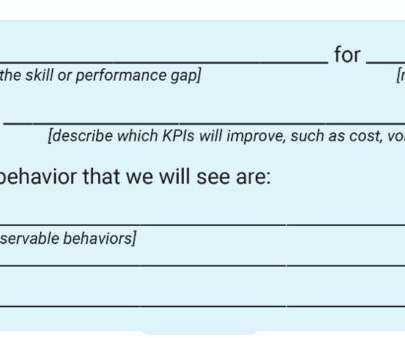Kirkpatrick Revisited | Social Learning Blog
Dashe & Thomson
APRIL 17, 2011
Kirkpatrick says participants need to achieve certain knowledge, skills, and attitudes to get to the desired behavior and results. have been accomplished, no change in behavior can occur. Level 3: Behavior. He says unless one or more of the learning objectives?knowledge, knowledge, skills, and attitudes?have Level 4: Results.













































Let's personalize your content